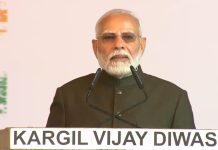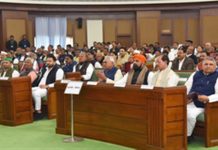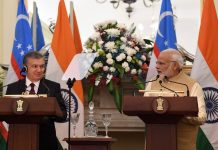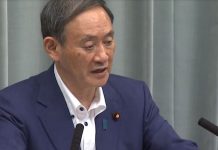EAM S. Jaishankar has expounded India’s contemporary foreign policy imperatives accompanied by its strategic concerns. He explains that India’s pragmatic world-view has enabled her to adopt a dynamic approach towards global issues. by Gopal Misra
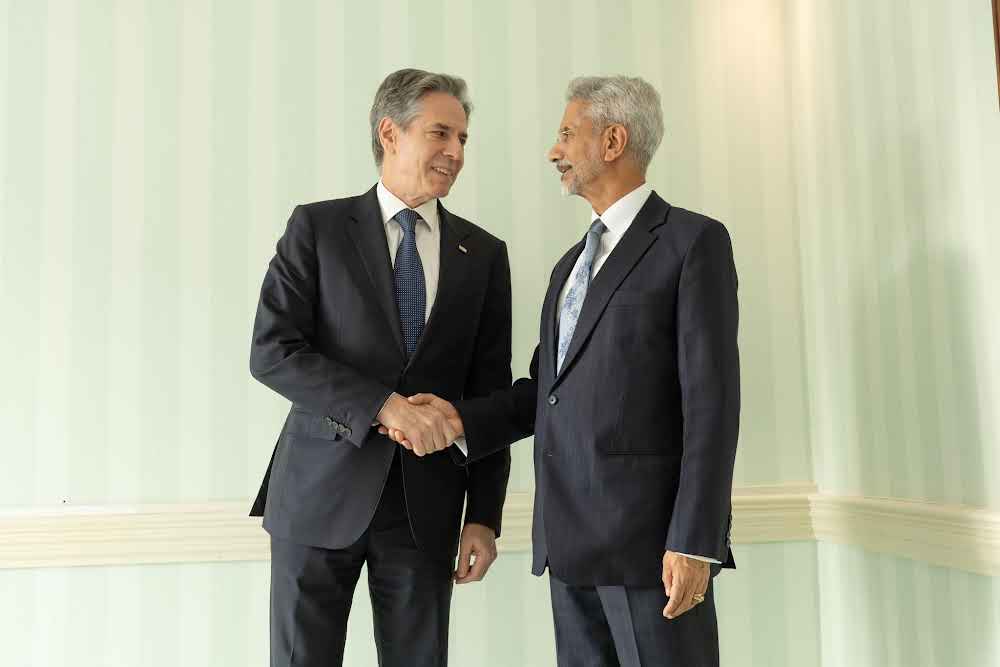
The two high-profile interactions were held among the major players in geo-politics during February 2024. The first was held at Munich (Feb 16-18), where the world leaders of IT industries were present, while the other concluded in New Delhi on February 23. They have set in motion a new perspective towards the global challenges having both national and international issues.
At the Raisina Dialogue in New Delhi as well as during the discussions in Munich, Indian External Affairs Minister S. Jaishankar successfully expounded India’s contemporary foreign policy imperatives accompanied by her strategic concerns. He candidly talked about India’s multi-level approach towards world issues. In New Delhi discussions, however, he strongly voiced his disapproval of other countries meddling into the ‘tense’ India-China relationship.
During the discussions on the sensitive security issues in Munich, Jaishankar presented India’s concerns in the presence of the US Secretary of State, Antony Blinken, Ethiopian Prime Minister Hailemariam Desalegn and a number of high-ranking participants from Africa, Europe and Asia. He also briefly met his Chinese counterpart, Wang Yi on the sidelines of the Security Conference.
Much to the dismay of many security experts in New Delhi awaiting peace finally dawning on the Indo-Tibetan borders, there was no diplomatic breakthrough between India and China for a permanent peace initiative. It means that the stand-off between Indian and Chinese troops in the High Himalayan region of Eastern Ladakh, will continue to haunt the fragile relationship between the two Asian giants despite the brief meetings between their top diplomats. The India-China relations have remained frozen since May 2020 when the People’s Liberation Army (PLA) amassed troops in the high Himalayas that had triggered off a deadly clash.
Addressing the AI Challenges
The conference attracted worldwide attention due to the presence of high-tech companies deciding not to encourage use of artificial intelligence (AI) for election purposes. It is considered a groundbreaking move of the major technology companies to voluntarily adopt measures aimed at preventing the malicious use of artificial intelligence (AI) tools to disrupt democratic elections globally. The pact, announced at the Munich Security Conference, included executives from Adobe, Amazon, Google, IBM, Meta, Microsoft, OpenAI, TikTok, and Elon Musk’s X among others.
The framework focuses on addressing the threat posed by AI-generated deepfakes, which can intentionally deceive voters by manipulating images, audio and video. While the accord is largely symbolic, it marks a significant step towards addressing the growing concern of AI misuse in the political landscape. Twelve additional companies, including chatbot developers Anthropic and Inflection AI, voice-clone start-up ElevenLabs, chip designer Arm Holdings, and security companies McAfee and TrendMicro, have also joined the initiative.
The statement of Nick Clegg, President of Global Affairs for Meta, is being noticed worldwide. He has emphasized on the collective responsibility to address the challenges posed by AI technology. He further stated, “Everybody recognizes that no one tech company, no one government, no one civil society organization is able to deal with the advent of this technology and its possible nefarious use on their own.”
The announcement comes at a crucial time, with over 50 countries, including India, scheduled to hold national elections in 2024. Recent instances of AI-generated election interference, such as robocalls mimicking U.S. President Joe Biden’s voice and AI-generated audio recordings impersonating political candidates, highlight the urgency of addressing this issue.
It is hoped that in future, the issue will also be focussing on the possible use of AI in warfare.
Indian Foreign Policy Redefined
India External Affairs Minister S. Jaishankar’s observation that India is not the West or she is anti-West received wide-spread attention. He further clarified, “We try to explain what are the different pulls and pressures that countries have. It’s very hard to have or evolve any uni-dimensional relationship.”
“I do not want you, even inadvertently, to give the impression that we are purely and unsentimental transactional. We are not. We get along with people, we believe in things, we share things, but there are times when you are located in different places, different levels of development, different experiences, all of that gets into it,” Jaishankar added.
He explained India’s pragmatic world-view which had enabled her to adopt a dynamic approach towards global issues. Many in India who consider the policy of non-alignment a ‘holy cow’ or a non-negotiable agenda, might find his statement outrageous; however, he appeared to be in good humour, when he stated, “If India moves from “non-alignment” to multi-alignment, why should that be a problem? If I am smart enough to have multiple options, you should be admiring me. Is that a problem for others? ” India’s top diplomat made this remark in response to the moderator explicitly referenced India’s ongoing procurement of crude oil from Russia despite Moscow’s invasion of Ukraine.
Another Perspective
It is being stated that the recent observation of Nikki Haley, an aspiring Republican presidential candidate, regarding India-US ties is, perhaps self-explaining. She has stated that India wants to be a partner with the US, but currently lacks trust in American leadership. She also mentioned before a television channel that India has strategically stayed close with Russia in the global situation; because India doesn’t trust American leadership, and as of now, India sees the United States as weak.
“I have dealt with India too. I have got to say, I have dealt with India too. I have talked with Modi. India wants to be a partner with us. They don’t want to be a partner with Russia,” she said. “The problem is, India doesn’t trust us to win. They don’t trust us to lead. They see right now that we’re weak,” she added.
She further stated that India has always played it smart. They have played it smart, and they have stayed close with Russia, because that’s where they get a lot of their military equipment.”
“When we start to lead again, when we start to get the weakness out and stop putting our head in the sand, that’s when our friends, India, Australia, New Zealand, all of them will — and Israel, Japan, South Korea — all of them want to do that.”
Raisina Dialogue
The Raisina Dialogue inaugurated by Indian Prime Minister Narendra Modi with his Greek counterpart, Kyriakos Mitsotakis as the chief guest has also attracted the attention of policy makers and scholars across the continents, who have been apprised of Indian perspectives. The Raisina Dialogue is held every year, and its ninth edition this year was jointly organized by the Ministry of External Affairs, and Ambani’s Observer Research Foundation, a policy research outfit. Its theme this year was “Chaturanga: Conflict, Contest, Cooperate, Create,”
More than 2,500 delegates from around 115 countries attended the meeting highlighting the dialogue’s global importance. It delved into crucial topics across six categories: Tech Frontiers: Regulations and Realities; Peace with the Planet: Invest and Innovate; War and Peace: Armouries and Asymmetries; Decolonising Multilateralism: Institutions and Inclusion; The Post-2030 Agenda: People and Progress; and Defending Democracy: Society and Sovereignty. The participants included ministers, national security advisors, high-ranking officials, diplomats and representatives from various sectors worldwide.


